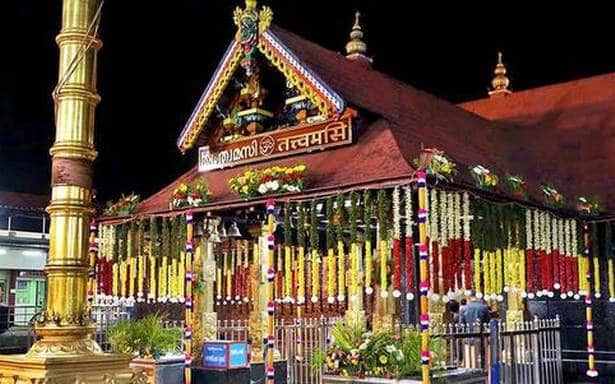For ten thousand years, our temples and the festivals associated with them have nurtured our religious traditions. This has been always against various opposing forces. Every temple has a story; every temple festival has a legend behind it. These have been preserved in our Sthala Puranas. To ignore or neglect this great heritage is like overlooking a treasure house of knowledge and well-being.
The Azhvar saints sing the glory of Vishnu and the Nayanmars that of Shiva. In the Vedas all deities are extolled with hymns in the same way. The Upanishads or Vedanta do not speak much about deities as they are concerned with the introspection into truths of the Self. Tiruvalluvar speaks about God and philosophical matters with emphasis on morals and ethics. As for Tirumular, he deals with aspects of yoga like pranayama, dhyana, dharana and samadhi. Each great illuminous figure of Hindu Dharma, like each great work, speaks about a particular system, a particular path within this pathless ocean of spirituality- Santana or eternal religion.
In the “Sivamahimna-stotra” hymn, the one glorifying Shiva is Pushpadanta. He was a Gandharva or celestial musician, who under a curse of Ishvara, was condemned to live on earth. One stanza in his hymn says: “Trayee (the three Vedas), Sankhya (philosophical inquiry), Yoga, the Pashupata Tantra system, Shaiva-Vaishnava etc. are all for people to follow any of them, according to their different dispositions. Once in his anger, Shiva cursed Amba thus: “You shall be born a cow and shall keep roaming the earth.” Shiva is Pashupati, the Lord of animals – he is the Lord who controls the animal senses or the Indriyas.Though she is Mahasakti herself, Ambal realised her error and roamed the earth as an ordinary cow. In her one thousand Names (Sahasranama) Ambal is extolled as Gomata, Guhajanmahbu. She came to the earth as Gomata (Mother Cow).Vishnu is Ambal’s brother and is very attached to her. He thought to himself- I will have my sister under my protection. So taking the guise of a cowherd he accompanied the divine cow. He took delight in grazing cows in his incarnation as Krishna. He then came to be called Gopala which also means Pashupati. If you reflect on two other names of Shiva and Vishnu, you will cease to make any distinction between them. That of Natwar and Natraja- one who is an actor and one who is the king of the act.
Tiruvisanallur Ayyayal was great man. His real name was Sridhara Venkatesvara. He lived some three hundred years ago and was the senior contemporary of Bhagavannama Bodhendras. Bodhendra propagated devotion to Rama and Govinda. Ayyaval spread the glory of Shiva by singing his names. Neither of the two regarded any distinction between Shiva and Vishnu. They had respect and affection for each other and established the doctrine that in the age of Kali repeating the names of the Lord (nama japa) is the best remedy for deliverance from bondage. During a Shraddha ceremony, Ayyaval fed an untouchable. The village headman gave the ruling that he had to bathe in the Ganga in expiation. Ayyaval made the sacred river rise in the well in the backyard of his house. The incident took place on the new moon of the month of Kartiga (November-December). Even today devotees bathe in the water of this well in the belief that it is not less than a dip in the holy Ganga.
Coming to the most important part, that of the sovereign role of Lord Ayyappa to preserve this unity of Shiva-Vishnu Aikya [oneness] or as Harihara putra [son]. For one who does not require a temple visit but can find divinity everywhere, remembrance and contemplation of the One Spirit is more than enough. For one who does not have any religious inclination, simply being a good human suffices. But for those whom temples remain a cherishable location to congregate, there are certainly certain norms to respect in this journey. Kshetra is the hallowed place wherein divinities are invoked. True understanding of faith makes one accept with contentment, which is the hallmark of a true devotee. Taking obeisance to this Lord of Kaliyuga, may we usher in deep love and surrender to our age-old temples with their unique glory.


















Discussion about this post